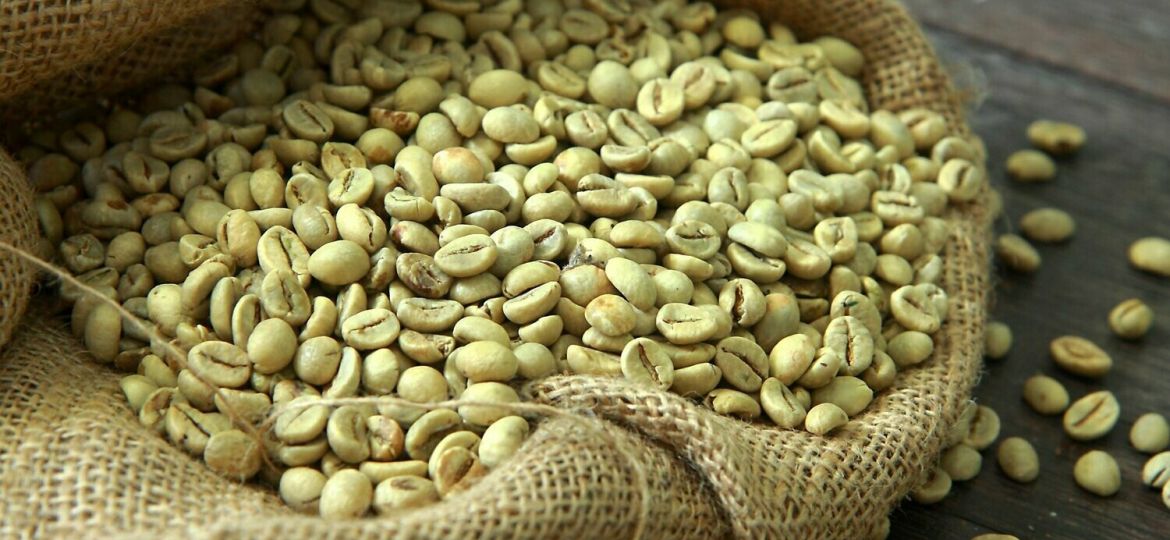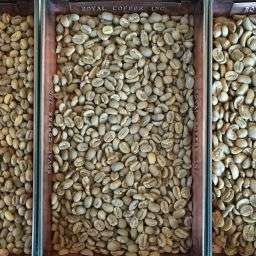
Buying unroasted coffee beans, commonly referred to as green coffee beans, offers a unique opportunity for coffee enthusiasts to engage directly with their brew. Unroasted beans are the raw seeds extracted from coffee cherries, which, after drying, are ready for roasting.
This process allows for a fresher experience and a deeper connection with the coffee’s origin, as the beans have not been altered or roasted prior to purchase. The benefits of buying unroasted coffee beans extend beyond just the sensory experience; they also include the ability to customize the roast level to personal taste preferences, ensuring each cup of coffee is exactly as desired.
Freshness and Customization
The primary advantage of purchasing unroasted coffee beans lies in the freshness it brings to your cup. Green beans can be stored for much longer than roasted beans without losing quality, which means you can roast them in small batches as needed. This not only ensures that your coffee is as fresh as possible but also allows for customization of the roast level.
Whether you prefer a light, medium, or dark roast, home roasting means you can tailor each batch to suit your taste, exploring a range of flavors and profiles that pre-roasted coffee cannot offer.
Economic Benefits
From an economic perspective, unroasted beans typically cost less than their roasted counterparts. This price difference arises because unroasted beans require further processing by the consumer. By roasting at home, coffee drinkers can save money in the long run, especially for those who consume coffee regularly.
Moreover, this approach supports a more sustainable consumption model by reducing packaging and the carbon footprint associated with transporting roasted coffee.
Single-Origin vs. Blends
Single-origin coffee beans are sourced from one location, whether a single farm, a specific collection of farms, or a particular region. These beans offer unique flavor profiles that reflect their growing conditions, such as soil composition, altitude, and climate. Conversely, blends consist of beans from multiple origins combined to create a balanced and consistent flavor.
Blending allows for a complexity of taste that single-origin beans cannot achieve on their own, providing a harmonious cup that highlights the best qualities of each component bean.
Popular Regions and Their Profiles
The region where coffee is grown has a significant impact on the flavor profile of the bean. Central American coffees, for example, are known for their bright acidity and balance, offering a range of flavors from chocolatey to fruity. South American beans, particularly from Brazil and Colombia, tend to have a sweeter, more nutty profile, with a smooth mouthfeel.
African coffees, such as those from Ethiopia and Kenya, are famous for their floral and fruity notes, often with a higher acidity and a distinctive winey quality. Lastly, Indonesian coffees, including Sumatran and Sulawesi, are appreciated for their full body and earthy, spicy flavors, offering a stark contrast to the brighter profiles of African and Central American beans.
Bean Quality and Characteristics
The quality of unroasted coffee beans is influenced by several factors, including size, shape, and color consistency. Uniformity in these aspects is crucial for even roasting, as beans of similar sizes and shapes roast at comparable rates, reducing the risk of under or over-roasting.
The processing method plays a significant role as well, with the natural/dry process bringing out sweet, smooth flavors, and the washed/wet process resulting in cleaner, fruitier profiles. Drying conditions are equally important; beans should be dried to about 12% moisture content to preserve flavor and prevent spoilage.
Certifications and Sustainability
Certifications such as organic, Fair Trade, and Rainforest Alliance signify adherence to rigorous standards of production that prioritize environmental conservation, fair compensation, and sustainable community development. These certifications ensure that the coffee you purchase supports ethical practices.
Beyond ethical considerations, sustainable farming practices can enhance the quality of coffee by ensuring the health of the soil and ecosystem, which in turn influences the flavor profile of the coffee beans.
Online Retailers and Specialty Stores
Purchasing unroasted coffee beans from online retailers or specialty stores offers a vast selection of beans from around the world, allowing consumers to explore diverse flavors and origins. When selecting a vendor, look for those with positive reviews and a wide product range, indicating a commitment to quality and customer satisfaction.
Online platforms also provide the convenience of detailed product descriptions and customer reviews, aiding in informed decision-making.
Packaging and Storage
To preserve freshness, unroasted coffee beans should be stored in a cool, dark place in an airtight container. This method prevents moisture and air from affecting the beans, maintaining their quality until roasting. For beginners, starting with smaller package sizes is advisable to prevent waste and ensure beans are used at their peak freshness.
FAQs
- Shelf Life of Unroasted Beans: Properly stored, unroasted coffee beans can last up to a year without significant loss of quality.
- Roasting at Home: Home roasting allows for customization of the roast profile, enhancing personal enjoyment of the coffee.
- Health Benefits of Green Coffee: Unroasted coffee beans are believed to retain higher levels of antioxidants compared to roasted beans, though benefits may vary based on consumption patterns.
Conclusion
Exploring the world of unroasted coffee beans opens up a realm of customization and personal connection to the coffee brewing process. From selecting beans with the desired quality and certifications to mastering the art of home roasting, this journey enhances not only the taste of your coffee but also supports sustainable and ethical coffee production.
Embrace the opportunity to deepen your understanding and appreciation of coffee through the hands-on experience of buying and roasting your own unroasted coffee beans.









